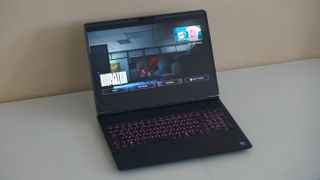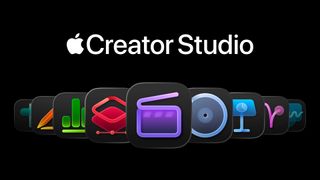Computing

Welcome to TechRadar’s computing channel. Here, you’ll find all the latest news, reviews, guides and more for anything computer related. We’re not just talking about laptops and PCs (although we have loads of content on them), but also MacBooks, Chromebooks, peripherals (such as mice and keyboards) and the software they run.
The computing landscape is constantly and rapidly changing, which can be both exciting and baffling. An increasing number of us are either working from home or embracing hybrid ways of working, which means picking the best laptop for your needs is essential. Meanwhile, the rise of Artificial Intelligence (AI) chatbots, such as ChatGPT and Google Bard, has given us a tantalizing glimpse of what the future of tech holds.
There’s never been a more exciting time in computing, so let us help you make sense of it all.
Explore Computing
Latest about Computing

Valve is facing a lawsuit over 'monopoly' claims on Steam – and I'm scratching my head at this one
By Isaiah Williams published
Valve's Steam storefront is favoured by a large majority of PC gamers, with generous discounts and pricing, but a lawsuit has called that into question.

Alienware 16X Aurora
By Ural Garrett published
Portability, style, and adequate 1440p power

Past Wordle answers – every solution so far, alphabetical and by date
By Marc McLaren last updated
Knowing past Wordle answers can help with today's game. Here's the full list so far.

New test shows how Windows 11 beats Windows 10 in gaming performance
By Darren Allan published
Think Windows 10 is faster than Windows 11 for gaming? You're dead wrong, based on a new test — but I'm betting this won't sway Windows 10 holdouts.

Quordle hints and answers for Thursday, January 29 (game #1466)
By Johnny Dee published
Looking for Quordle clues? We can help. Plus get the answers to Quordle today and past solutions.

NYT Strands hints and answers for Thursday, January 29 (game #697)
By Johnny Dee published
Looking for NYT Strands answers and hints? Here's all you need to know to solve today's game, including the spangram.

TikTok is allegedly censoring anti-Trump content, and more users are picking up on it.
By Rowan Davies published
California Governor Gavin Newsom is launching a review of TikTok's potential violations after more users are reporting anti-Trump censorship.

Apple Creator Studio does a lot right — and leans back into creativity
By Jacob Krol published
Apple Creator Studio is the company’s newest app bundle — here are my first impressions.
Sign up for breaking news, reviews, opinion, top tech deals, and more.

